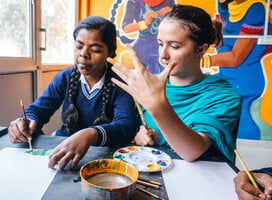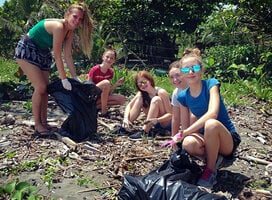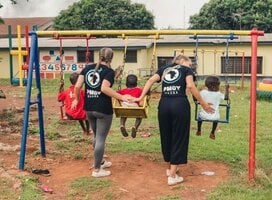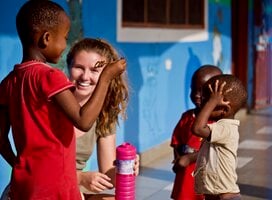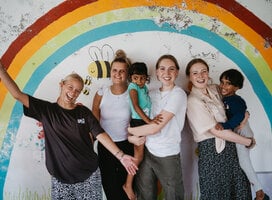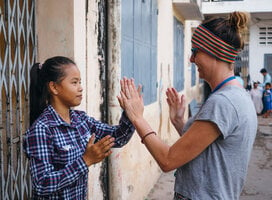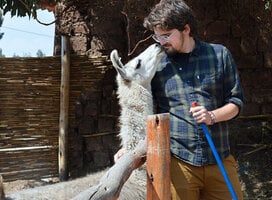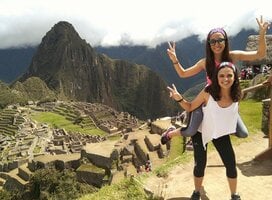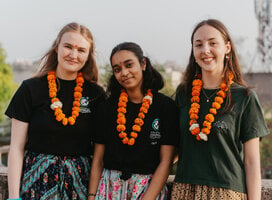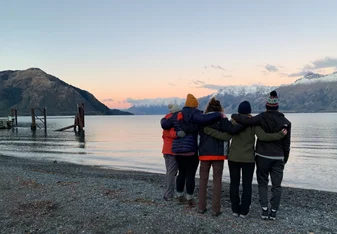Healthcare Volunteer Abroad Programs
In an increasingly globalized world, achieving health for all has become incredibly complex. Health outcomes are no longer determined only by a country’s policies -- but also by global health institutions and changing environmental factors. As such, volunteers play an important and necessary role in shaping global health.
Whatever your motivations, you should remember that health and medical volunteering is not as simple as “lending a hand” in a community. It is very likely that -- due to staffing and resource shortages in low-resource countries -- medical and health volunteers will step into vital roles that have a real-world impact on community members.
Having said that, volunteers can choose a program that ensures an enriching learning experience as well as a meaningful impact in their chosen community. Such programs might include direct medical care, community empowerment through health education, or illness prevention through public health initiatives.
Medical Care Volunteering
Volunteers with a medicine-based skill set can align themselves with organizations working in communities in a number of capacities. From general medical care to specialized areas like dentistry, trained medical personnel are always needed. Depending on the country and region chosen, volunteers might work in a local hospital or accompany healthcare practitioners with their daily door-to-door assessments in the community.
Health Education Volunteering
When organizations need assistance spreading health information, they often turn to volunteers to develop a health curriculum and deliver tailored sessions based on the identified needs of the community members. Since every community setting is different, topics or themes can include maternal health, gender empowerment, nutrition, and even fundamental knowledge about hygiene practices.
Public Health Volunteering
Volunteers interested in preventing illnesses or understanding complex health outcomes can choose to work with public health practitioners. Tasks such as large-scale data collection through surveys and interviews and the distribution of tools like mosquito nets are powerful strategies used in effective preventative health measures.
Mental Health Volunteering
The mental health and well-being of communities around the globe are being eroded by contemporary global issues like prolonged displacement, armed conflict, and environmental disasters. Volunteers trained in counseling/psychosocial capacities can seek out organizations that look to alleviate the burden of mental illness.
Underserved communities are in need of medical help all over the world for nearly all types of service - from vaccine provision to basic health checkups. Unfortunately, many parts of the world continue to experience a shortage of health workers and limited access to advanced healthcare.
Peru
Home to incredible Machu Picchu, Peru offers more than just intriguing historical sites. There is a large rural population without access to basic healthcare, and illnesses such as dengue fever, typhoid fever, and hepatitis are widely found.
Volunteers can work in villages and clinics to help provide care, such as basic check-ups for low-income Peruvian families, while also learning about village life and Peruvian culture. Assistance is also needed with education on preventative healthcare, hygiene, and nutrition.
South Africa
HIV and AIDS continue to be a principal concern of the South African healthcare system. Many South African volunteer programs work to emphasize awareness and educate the community about HIV threats.
However, volunteers can also choose to participate in rural healthcare assistance programs and work in clinics providing much-needed support for the prevention and treatment of prevalent diseases like hepatitis A, typhoid fever, and bacterial diarrhea.
Uganda
Uganda is a beautiful East African nation that faces many of the common health challenges of the region, like HIV/AIDS and malaria. Volunteers in health will work with organizations that focus not only on the treatment and prevention of tropical diseases but community health education and the achievement of better health outcomes for rural Ugandans.
Dominican Republic
Sharing a border with Haiti, the population of this small Caribbean island nation has unique care needs that have been shaped through centuries of colonialism and poverty. Health and medical volunteers might find themselves working with community organizations that focus on health challenges around water and sanitation systems development as well as environmental sustainability initiatives.
Ecuador
Located, unsurprisingly, on the equator in South America, Ecuador is a culturally rich nation undergoing an ambitious overhauling of their healthcare system to achieve “Health for All”. Health and medical volunteers in Ecuador have the unique opportunity to work in family medicine and community-level health initiatives to understand, treat, and prevent negative health outcomes. Volunteers can also work to understand traditional routes to healing through the care of indigenous groups.
Cambodia
The HIV/AIDS epidemic in Cambodia is one of the most critical in Asia, and volunteers in Cambodia have the opportunity to engage high-risk groups and the general public in HIV/AIDS educational efforts. The average life expectancy of both males and females is under 70 years, and much of the country is still underdeveloped, meaning that access to healthcare is inadequate, especially in rural areas. Thus, volunteers are not limited to HIV/AIDs education outreach and can also help administer health procedures in rural areas.
Thailand
Medical projects in Thailand often place volunteers in rural areas where even basic healthcare is inconsistent and advanced care is difficult to access. Volunteers may find themselves taking a hike up to a hill tribe community in the mountains to help locals with basic medical treatments, or educating villagers in a different community on preventable diseases.
Costa Rica
Many Costa Ricans do not have access to basic healthcare. In some areas, there are shortages of medical resources, so volunteers may support the front line by giving vaccinations.
There are also opportunities to monitor and administer care to children with nutritional problems and shadow local doctors. Many volunteer programs recommend having basic Spanish skills to help improve communication with patients and local doctors.
India
Because India has experienced economic growth in recent years, many new medical centers and clinics have materialized. However, even with funded medical research taking place, infectious diseases persist throughout the country.
Volunteers may find themselves in large and advanced hospitals learning from local doctors, or administrating basic health functions such as treatment of wounds in rural areas, where many cannot afford medical care.
Ghana
There is a growing shortage of health professionals in Ghana, and assistance at local hospitals is greatly needed in treating diseases such as malaria and typhoid. To help local doctors and nurses, volunteers will learn how to work with the local clinics’ basic equipment and medicine.
Ghana also provides opportunities for medical outreach in the form of adolescent sexual and reproductive health education to encourage healthy habits early on.
Honduras
HIV in Honduras continues to be a dire health issue and represents 60% of all recorded cases in Central America. The public healthcare system in Honduras is less developed than most Latin American systems, and there is a huge need for healthcare volunteers to help in local hospitals and raise awareness of HIV preventative measures.
Specific activities will vary depending on the volunteer’s skills, but regardless of skill set, volunteers will have the opportunity to lend a helping hand where medical support is greatly needed.
Tanzania
Access to healthcare is especially difficult to achieve for the many Tanzanians living in poverty. Communicable diseases like tuberculosis and malaria, which are the leading cause of death for Tanzanian children, are widespread, and medical facilities are supplied with only basic equipment.
There’s a role available for every medical experience level, and volunteers can not only expand their medical experience but also learn how to be highly flexible and adaptable in a location where resources are often scarce.
Planning a trip that focuses on volunteering in a health or medical capacity should not be taken lightly. Potential volunteers must look for a country, program, and organization that fits their skill set and learning outcomes while ensuring that their presence will also be useful and well-received.
How to Choose a Medical and Health Volunteer Program
An important aspect to consider as a potential medical or health volunteer is finding a program that fits your intended interests and skills. Different organizations will have vastly different mandates based on the health of the population they work with.
As for organizations and programs, look for ones that have a proven track record in their community and a structured program for volunteers to seamlessly integrate into. Ask questions about how they operate, who you will work with, and what your role will be as a medical or health volunteer. Do not be afraid to inquire further about the details important to your experience.
Before heading overseas, you should know all of the logistical details about your experience such as accommodations, meals, and transportation. Once you are on the ground in your host country, you should confirm all details for a safe and easy transition into everyday life. Following the guidelines set out by your host organization is a good way to ensure your health and safety while overseas.
